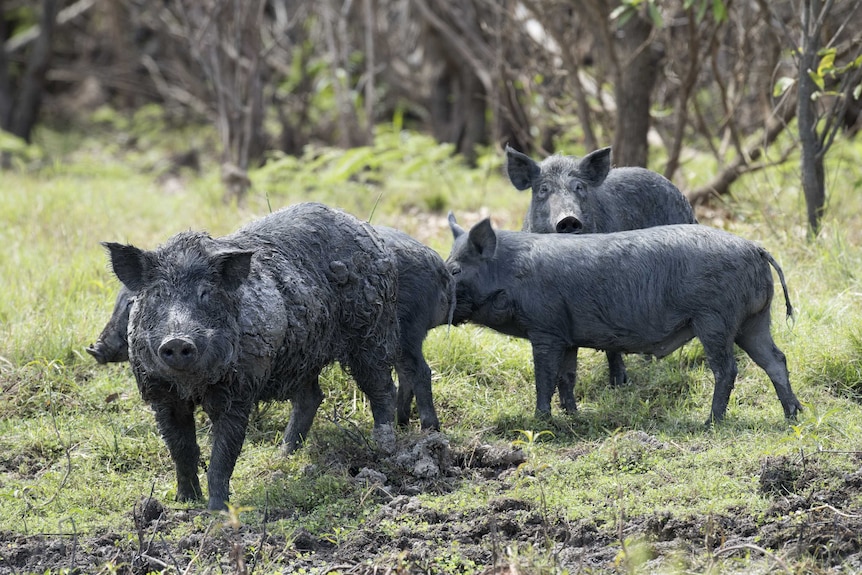Feral pig control program for bushfire impacted areas
08 Apr 2022
PRODUCTION ADVICE & NRM NEWS - APRIL 2022 - INVASIVE SPECIES
By Claire Hockley, Biosecurity Officer
M: 0419 839 049 | E: claire.hockley@lls.nsw.gov.au

Murray Local Land Services are trialling HOGGONE® to control feral pigs in the east of the region. The control program will largely focus on properties impacted, or close to, 2019/2020 bushfire affected areas.
Following the bushfires, there has been increased concern about the impact of pest animals on the recovery of biodiversity and farm production.
Feral pigs are highly destructive and can cause significant damage to pasture, crops, and infrastructure as well as prey on native wildlife, damage wetlands, foul water and stress livestock. They also carry exotic diseases that can be spread to both livestock and humans. As they can travel long distances, feral pigs can impact biodiversity and farm productivity across a large area.
If you notice feral pig activity on your property you should report it to Local Land Services. Our Biosecurity Officers can provide all the materials, support and advice you need to undertake a suitable control program.
Planning a coordinated program with neighbours, as well as using a variety of other control techniques such as trapping and shooting, increases the chance of a successful program.
What is HOGGONE®?
HOGGONE® is a fast-acting and highly toxic feral pig bait designed for broad-scale control and management of feral pigs. The active ingredient in HOGGONE® is sodium nitrite, a common human food preservative that feral pigs are highly susceptible to. Unlike other poisons such as 1080, the residue of sodium nitrite in the dead pigs does not pose any risk to domestic animals, making it safer to use in areas where landholders would prefer not to use 1080 poison. HOGGONE® must be used in specially designed bait boxes that reduce access to non-target animals.
If feral pigs are a problem on your property and you are located in the Holbrook, Wymah or Upper Murray regions, please contact your local Biosecurity Officer to discuss your options.
Biosecurity Officer contacts: Stephen Wilson 0427 362 618, Liz O’Grady 0427 362 703 or Claire Hockley 0419 839 049.
This program has been supported by the Australian Government’s Bushfire Recovery Program for wildlife and their habitat.